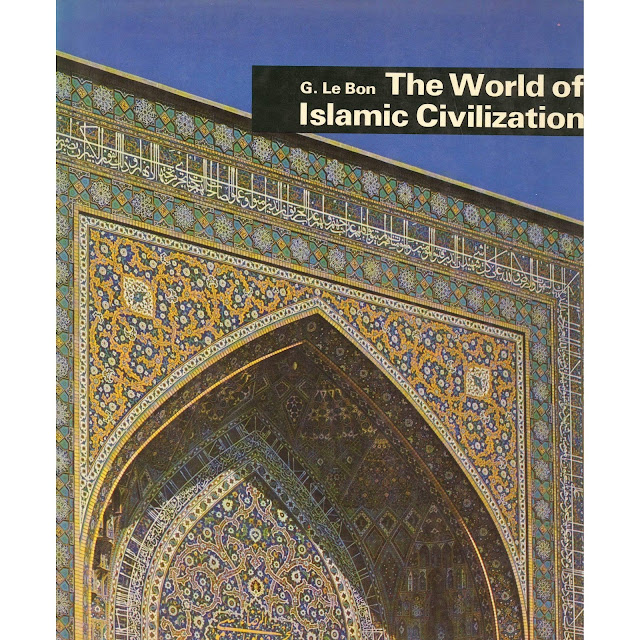"Democracy, Human Rights and Law in Islamic Thought" Mohammad Abed al-Jabri (2009)
Mohammad Abed al-Jabri is one of the most influential political philosophers in the contemporary Middle East. A critical rationalist in the tradition of Avincenna and Averroes, he emphasizes the distinctive political and cultural heritage of the Arab world while rejecting the philosophical discourses that have been used to obscure its democratic deficit.
This volume introduces an English-language audience for the first time to writings that have had a major impact on Arab political thought. Wide-ranging in scope yet focused in detail, these essays interrogate concepts such as democracy, law, and human rights, looking at how they have been applied in the history of the Arab world, and show that they are determined by political and social context, not by Islamic doctrine.
Jabri argues that in order to develop democratic societies in which human rights are respected, the Arab world cannot simply rely on old texts and traditions. Nor can it import democratic models from the West. Instead, he says, a new tradition will have to be forged by today's Arabs themselves, on their own terms.
..............................
Title:Democracy, Human Rights and Law in Islamic Thought
(Comtemporary Arab Sclarship in the Social Sciences)
Author: Mohammad Abed al-Jabri
Publisher: I. B. Tauris
Year: 2009
Number of pages: 258
..............................
:: Table of contents ::
Volume I:
Religion, State and the Application of Islamic Shariah
Introduction 3 (28)
Part One: The Question of Religion and the State
Religion and the State in the Authoritative 31 (16)
Cultural Referent
Religion and State in the Renaissance 47 (10)
Authoritative Referent
Religion, Politics and Civil War 57 (6)
Part Two: The Question of Applying al-Shariah
Awakening and Renewal 63 (4)
Traditionalism (al-salafiyah)...or The 67 (4)
Historical Experience of the Nation?
Extremism: Right and Left 71 (3)
Extremism Between Creed and al-Shariah 74 (3)
For the Procession of Ijtihad 77 (4)
The Rationality of the Rulings of al-Shariah 81 (5)
Rulings and Dependence 86 (4)
Every Age has its Special Needs 90 (4)
`Avoid the Hudud Penalties when in Doubt' 94 (5)
Concerning `Complete Application of 99 (20)
al-Shariah'
Volume II:
Democracy and Human Rights
Introduction 107(12)
Part One: Democracy: Its Historical Role in the Arab World
A Demand in the Arab World 119(3)
Al-Shura and Democracy are not One and the 122(4)
Same
The Difficult Birth 126(4)
Partnership in Human Governance 130(4)
Democracy and the Right to Speak 134(4)
No Way Out Except Through a Historical Bloc 138(7)
Part Two: Democracy and the Current Arab Reality
The Problem of the Transition to Democracy 145(3)
Objective Situations Conducive to Democracy 148(4)
Contemporary Arab Ideology and its Doubts 152(3)
about Democracy
Dispersing the Doubts about Democracy 155(4)
The State that Swallows up Society 159(3)
Civil Society and the Elites in the Arab 162(4)
Nation
Elites Fear Democracy 166(3)
Democracy, a Necessity 169(6)
Part Three: Cultural Implantation of Human
Rights in the Contemporary Arab Conscience
Human Rights: Particularity and Universality 175(3)
Universality of Human Rights in the 178(5)
European Point of Reference
Universality of Human Rights in the Islamic 183(5)
Authoritative Point of Reference: Reason
and Innate Nature
The Universality of Human Rights in the 188(4)
Islamic Authoritative Point of Reference:
Covenant and al-Shura
Philosophy of Human Rights and Religion 192(4)
Freedom is One Thing, Apostasy Another 196(5)
Women's Rights in Islam: Between the 201(8)
Fundamental Principles of al-Shariah and
its Particular Rulings
Part Four: Enhancing Awareness of Human Rights in Islam
The Concept of the Human Being in Modern 209(3)
Thought
The Concept of the Human Being in the Quran 212(5)
The Right to Life and its Enjoyment 217(4)
The Right to Freedom of Belief, Knowledge 221(5)
and Difference
Al-Shura between the Quran and the 226(4)
Circumstantial Interpretations
The Right to Equality and the Question of 230(4)
`Preference'
Slavery and the Rights of Women 234(4)
The Right to Justice: The Strength of the 238(3)
Quranic Text and the Vacillation of the
`Advisory Discourse'
The Rights of the Weak Oppressed: The Right 241(4)
of the Poor to the Wealth of the Rich
Social Security in Islam: Necessity of 245(4)
Development
The Rights of God, the Rights of People: 249(3)
Application of al-Shariah
Index 252






